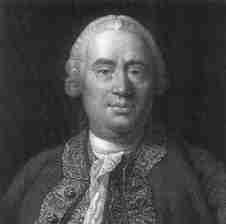📱 eBook en inglés THE HISTORY OF ENGLAND: ALL SIX VOLUMES
Enriched edition. Illustrated Edition
Good Press - 8596547771814
Sinopsis de THE HISTORY OF ENGLAND: ALL SIX VOLUMES
In this enriched edition, we have carefully created added value for your reading experience:
- A comprehensive Introduction outlines these selected works unifying features, themes, or stylistic evolutions.
- The Author Biography highlights personal milestones and literary influences that shape the entire body of writing.
- A Historical Context section situates the works in their broader era—social currents, cultural trends, and key events that underpin their creation.
- A concise Synopsis (Selection) offers an accessible overview of the included texts, helping readers navigate plotlines and main ideas without revealing critical twists.
- A unified Analysis examines recurring motifs and stylistic hallmarks across the collection, tying the stories together while spotlighting the different works strengths.
- Reflection questions inspire deeper contemplation of the authors overarching message, inviting readers to draw connections among different texts and relate them to modern contexts.
- Lastly, our hand‐picked Memorable Quotes distill pivotal lines and turning points, serving as touchstones for the collections central themes.
Léelo en cualquier dispositivo

iPhone y iPad
Descarga la App de lectura Vivlio Casa del Libro para iOS. Es gratuita y está disponible tanto para iPhone como para iPad.

Android
Descarga la App de lectura Vivlio Casa del Libro para Android. Es gratuita y está disponible tanto para móvil como para tablet.

Tu navegador
Puedes leer los eBooks directamente con nuestro visor online, accediendo a nuestra web desde tu móvil o tu ordenador, sin necesidad de descargar nada. Accede a tu área de usuario y empieza a leer.

eReaders*
Puedes conectar tu eReader a tu ordenador y enviar el libro al dispositivo utilizando Adobe Digital Editions.
* Los eReaders de Amazon (Kindle) solo permiten libros de su propia tienda, por lo que no son compatibles.
Ficha técnica
Editorial: Good Press
ISBN: 8596547771814
Idioma: Inglés
Especificaciones del producto
App gratuita de lectura Tagus
Ahora tu lectura es multidispositivo, con la App de Tagus, puedes tener todos tus libros en tu tablet y smartphone. Aprovecha cualquier momento para seguir disfrutando de las lecturas que más te gustan.
Escrito por David Hume

Opiniones sobre THE HISTORY OF ENGLAND: ALL SIX VOLUMES (EBOOK)
¡Sólo por opinar entras en el sorteo mensual de tres tarjetas regalo valoradas en 20€*!







































